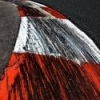
First racing fatality in history
#1

Posted 26 June 2008 - 10:13
According to the book "The Chequered Flag" by Ivan Rendall, the first racing fatal accident occurred in UK one month before, when Mrs. Bridget Driscoll was hit and killed by the Benz driven by Arthur Edsell during a demonstration run on public road at Crystal Palace, near London, on 17 August 1896.
Is this correct?
Advertisement
#2

Posted 26 June 2008 - 13:06
The 1891 census shows her to have been the wife of a labourer.
Wiki has something on the event: http://en.wikipedia....ridget_Driscoll
#3

Posted 26 June 2008 - 13:11
I don't trust anything in a book where Count Albert de Dion's first name is given in two different versions neither being Albert
#4

Posted 26 June 2008 - 13:17
The coroner Percy Morrison (Croydon div. of Surrey) said he hoped "such a thing would never happen again".
Kudos for hapless optimism if nothing else.
#5

Posted 26 June 2008 - 14:03
Originally posted by Allan Lupton
A demonstration run is not a race (to this day . . .) so why is that a racing fatality?
I agree. If there was no contest between parties to see who was fastest... it can merely be considered as a parade.
#6

Posted 26 June 2008 - 14:34
Agree.
But it does not seem to me simply a "traffic" accident.
At the time it was very difficult to define a race. In the Motorsport Memorial there are several accidents of the early years of past century which happened while testing "racing cars" in public roads.
Possibly Mr. Edsell had "prepared" his car (in sight of any race? only to increase its speed? who knows?) and was testing it in a demonstration run at the Crystal Palace.
#7

Posted 26 June 2008 - 20:53
#8

Posted 27 June 2008 - 08:24
Incidentally, a combination of both is also possible: this fatality happened during a test session for a demo run:
http://www.motorspor...hp?db=ms&n=2457
It is in the database, and rightfully so in my view.
#9

Posted 28 June 2008 - 17:37
Can someone tell me how that makes Levassor a racing fatality? If he had been in a coma for six months or some such, I could understand, but to the best of my knowledge he wasn't even hospitalized at all! In January he was reported as leading a car torso in connection with the Niece races, probably in the best of spirits, certainly doesn't strike me as an accident victim hovering on the brink of death!Originally posted by Nanni Dietrich
According to motorsport experts, the first fatality in racing history was Emile Levassor who crashed during the Paris-Marseille-Paris Trail on 26 September 1896 (he succumbed on 14 April 1897).
#10

Posted 29 June 2008 - 13:40
Concerning Driscoll and The Chequered Flag, whilst Allan's reservations are justified to an extent, to be fair Rendell does not claim Driscoll as the first racing fatality. The actual wording in the "Milestones" panel for 1896 on page 17 is: "At London's Crystal Palace, Bridget Driscoll was run over on 17 August by a Benz driven by Arthur Edsell to become motoring's first fatality" (my italics).
However...on page 20 there is a photo (picture credit is "Topham Picture Source") :

...which is captioned: "Motor racing's first fatal accident. Shortly after the start of a race at Perigueux, France, a Benz Parisienne (foreground) driven by M. de Montariol was forced off the road by the Marquis de Montignac. De Montariol leapt clear, but his mechanic was badly injured. The marquis, in a Landrey et Beyroux, lost control and ended up in the same field (background). The marquis and his mechanic died from their injuries."
On page 21, there is further detail :
"On 1 May during the Course de Perigueux, a locally organised 90-mile race in south-west France, motor racing passed a milestone that had long been dreaded: its first fatality. As in the Marseilles-Nice race (discussed in the preceding paragraphs - APL), light cars and heavier, more powerful cars were racing together in different classes. Shortly after the start M. de Montariol, driving a Benz Parisienne, heard the much heavier Landrey-et-Beyroux driven by his friend the Marquis de Montaignac coming up behind. Montariol moved over to let the faster car pass, and de Montaignac raised his hand in thanks, in a momentary lapse of concentration leaving the steering tiller unattended. His car swerved in front of the Benz, at once forcing Montariol off the road. Montariol shot up a little bank into a field, where he overturned. He himself was thrown clear, but his mechanic was crushed underneath the car, suffering severe head injuries.
Meanwhile de Montaignac compounded his error by turning to watch the crash, lost control again, and finished up rolling over several times in the same field, severely injuring himself and his own mechanic. The Marquis survived just long enough to take full responsibility for the crash before he died; his mechanic died shortly afterwards. Panhards finished up first and second, adding to their reputation, but their success was lost in the sombre mood at the finish."
So there we have a candidate: a death in a motor race on May 1st 1898. Might not be the first; might be some mistakes in the detail (note that the name of the Marquis is spelt differently in caption and paragraph, and his car's name appears both hyphenated and without), but there must be someone on TNF who can add to this story?
APL
#11

Posted 17 August 2010 - 21:48
#12

Posted 18 August 2010 - 15:32
The BBC mentions the anniversary of the Crystal Palace fatality today http://www.bbc.co.uk...gazine-10987606
I saw this article this morning - a bit off the topic of "racing" fatality I know but it seems strange that a vehicle driven at around 4mph could kill someone, I mean that is only slightly quicker than a brisk walking pace is it not - and probably slower than even the most casually-ridden bicycle. Obviously the car would weigh much, much more than a bike or a person, but regardless if you see something coming at that speed, unless it's round a blind corner, there'd be ample time to get out of the way? Although I guess that could be explained by the fact that cars were so rare in those days, not being used to them you wouldn't automatically have the corner of your eye trained on such things as we do today - on a visit to Amsterdam a few months ago I lost count of the number of times I nearly got wiped out by a bike simply because my mind wasn't conditioned to subconsciously to look out for them as often as I would back in England.
Still it rams home just how quicker cars got over time. Would the infamous Paris-Madrid race be considered the point where the increasing speed caught up and overtook the safety and construction of the cars at that time?


















